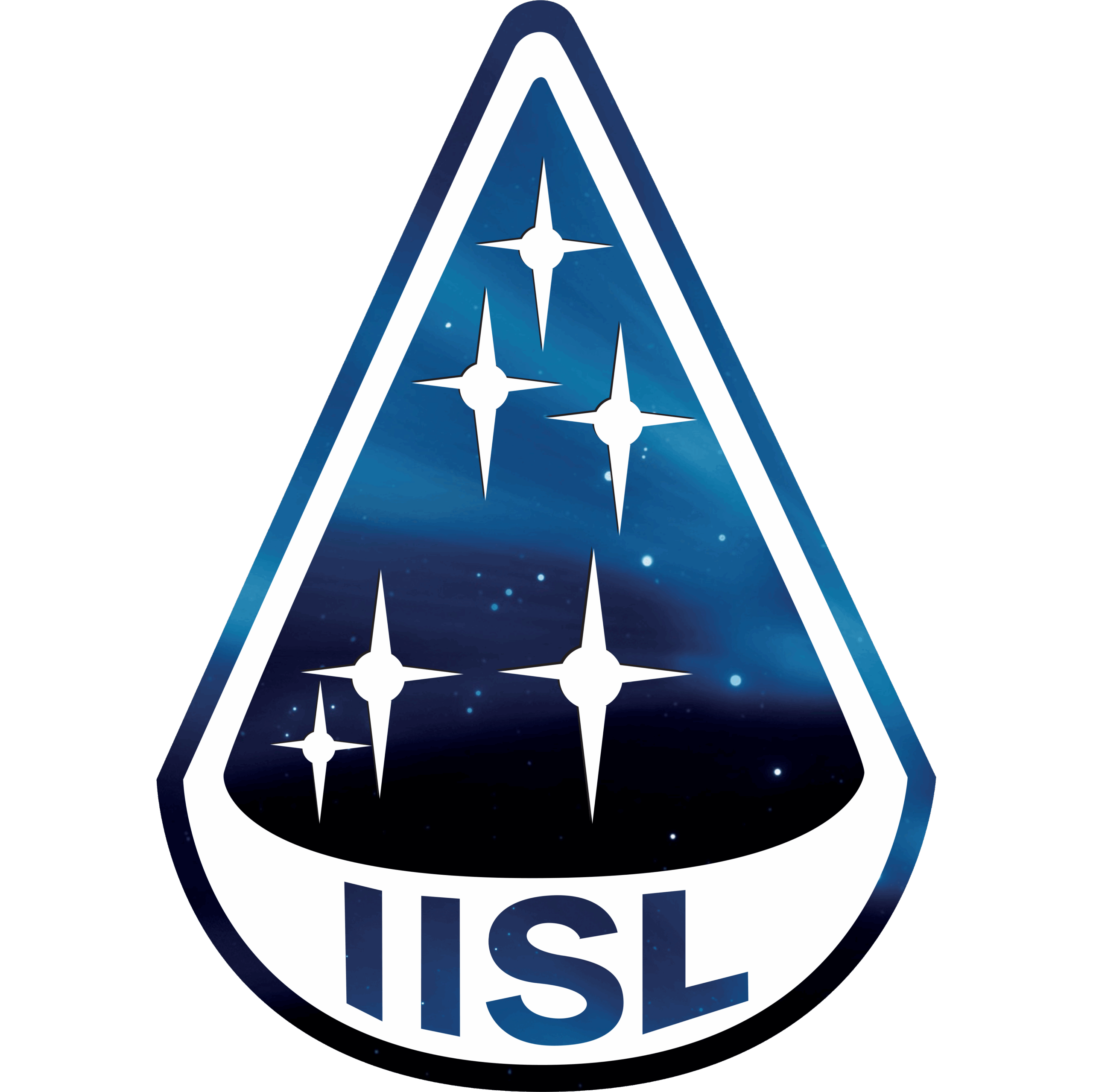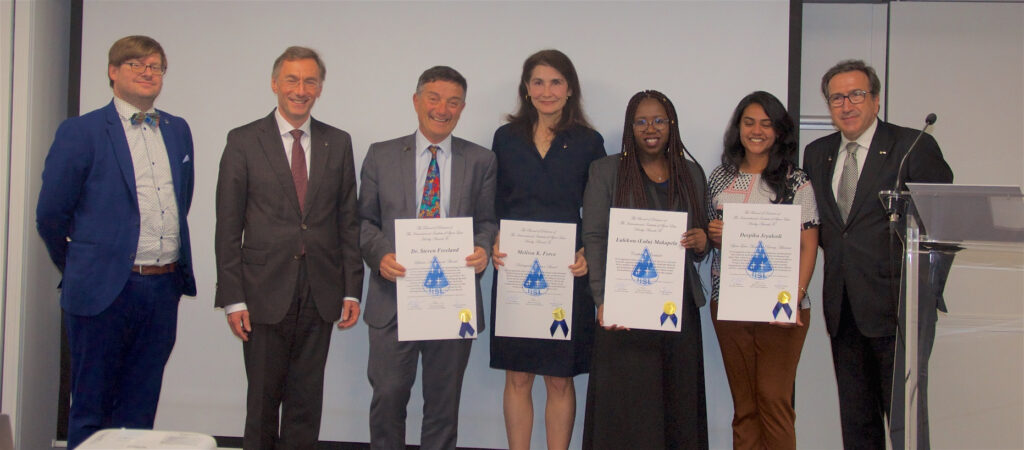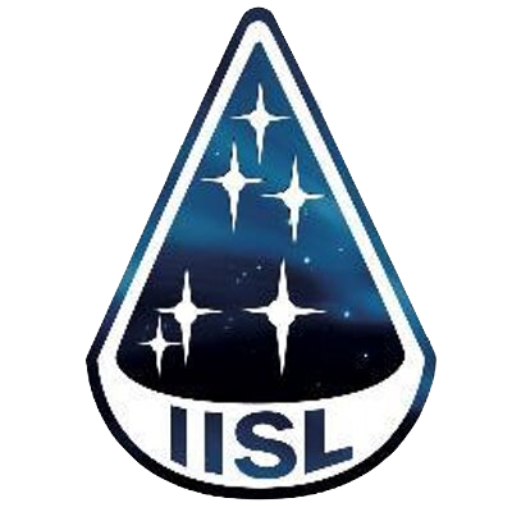
Founded in 1960, the International Institute of Space Law (IISL) is an independent non-governmental organisation dedicated to fostering the development of space law. The membership of the Institute is composed of elected individuals and institutions from almost fifty countries elected on the basis of their contributions to the field of space law or other social sciences related to space activities. In addition, prospective membership is open to students and young professionals with a demonstrated interest in space law.
Since its inception, the IISL has held annual colloquia on space law, the proceedings of which are published. The IISL presently has individual and institutional elected members from over 40 countries who are distinguished for their contributions to space law development The governing body of the Institute is the Board of Directors, which consists of the President, Presidents Emeriti, two Vice-Presidents, the Executive Secretary, the Treasurer and twelve other Members. The General Meeting of Members convenes once a year during the Colloquium To discharge responsibilities set out in the IISL Statutes, various permanent and ad hoc committees are established, such as the Standing Committee on the Status of International Agreements Relating to Activities in Outer Space.
The IISL is an official observer of the United Nations Committee on the Peaceful Uses of Outer Space (UNCOPUOS) and its Scientific & Technical and Legal Subcommittees. The IISL appoints members as official observers to the sessions of the Committee and presents reports on its activities. Also, in cooperation with the European Centre for Space Law (ECSL), the IISL organises annual IISL/ECSL space law symposia for the delegates and staff attending the sessions of the UNCOPUOS Legal Subcommittee in Vienna, Austria.

Organisational documents
The Statutes and Bylaws of the IISL are adopted by the General Assembly of members which meets each year, and the Institute is governed by a Board of Directors. The IISL is established as an association under Dutch law and is registered with the Chamber of Commerce of The Hague, The Netherlands.
The Institute is recognised as a Public Benefit Organisation (PBO) under Dutch law (ANBI) with the tax ID 8182.79.941. This means that natural and legal persons may deduct donations to IISL from their Dutch income tax or corporate income tax.
As a requirement to maintain this status, the Institute publishes an annual report. The 2018 annual report can be found here.
More information on the legal structure of the Institute is available here.
The purposes and objectives of the Institute include the cooperation with appropriate international organisations and national institutions in the field of space law and the carrying out of tasks for fostering the development of space law. It also includes the studies of legal and social science aspects of the exploration and use of outer space and the holding of meetings, colloquia and competitions on juridical and social science aspects of space activities.

Our Purpose and Activities
The objective of the IISL is to promote the further development of space law and the expansion of the rule of law in the exploration and use of outer space for peaceful purposes. To this end, it holds meetings, colloquia, and competitions on juridical and social science aspects of space activities, prepares studies and reports, publishes books, proceedings, reports and position papers, and cooperates with appropriate international organizations and national institutions in the field of space law.
The IISL holds its annual Colloquium on the Law of Outer Space at the International Astronautical Congress (IAC), in close cooperation with its two sister organisations, the International Astronautical Federation (IAF) and the International Academy of Astronautics (IAA). In addition, the Institute organises a variety of conferences on space law throughout the year in locations all over the world, such as the annual Eilene Galloway symposia on critical issues in space law.
The IISL publishes annual IISL Proceedings, containing papers presented at and reports of all its activities during the year, and issues Statements to foster the debate on legal aspects of space activities.
The Manfred Lachs Space Law Moot Court Competition has been organised by the IISL since 1992. Each year, students from North America, Latin America, Europe, the Asia-Pacific and Africa prepare and present written and oral arguments on a hypothetical space law case. Regional competitions are conducted each spring, and the winning teams meet in the World Finals held in conjunction with the annual IISL Colloquium at the IAC. The World Finals are traditionally judged by sitting Judges of the International Court of Justice in The Hague.
The IISL Space Law Knowledge Constellation is a global initiative that brings together key materials on space law, policy, and diplomacy. Its goal is to make nearly the entire body of relevant knowledge freely available online and, consequently, accessible to anyone, anywhere, at any time. By doing so, it supports open access to legal and policy resources that are essential for informed decision-making and responsible activity in space.
